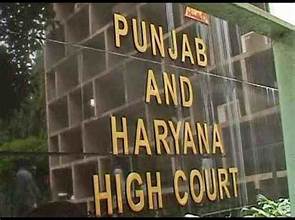The Punjab and Haryana High Court has upheld the 1995 dismissal of a Punjab Police constable, Mann Singh, who was accused of being in direct contact with extremist groups during Punjab’s period of terrorism. The court’s ruling, delivered on November 28, 2024, found no grounds to overturn the decision, despite the passage of nearly 30 years.
Background of the Case
Mann Singh was dismissed from service in 1995 based on intelligence reports suggesting his involvement with extremist factions, including Babbar Khalsa. His dismissal was carried out under the Punjab Police Act, 1861, and Punjab Police Rules, 1934, without an inquiry due to the serious security situation and fear of witness intimidation.
Court’s Judgment
Justice Jagmohan Bansal, delivering the judgment, noted that Mann Singh’s conduct during the period was questionable and there was no reason to interfere with the dismissal decision. The court emphasized that nearly three decades had passed since the dismissal, and given the grave nature of the allegations and circumstances, the decision was justified. The court also pointed out that while there was no formal inquiry due to safety concerns, intelligence reports from West Bengal and the Indian Government supported the dismissal.
Key Points in the Court’s Ruling
- Lack of Inquiry: Mann Singh’s lawyer argued that the dismissal violated Punjab Police Rules and Article 311 of the Indian Constitution, which mandates an inquiry before dismissal in such cases. The court acknowledged the absence of a formal inquiry but accepted the compelling security reasons behind it, given the terrorism-related context at the time.
- Misuse of Authority: The court’s review revealed that Singh had misused his official position, including an incident in Kolkata, where he was detained while carrying his official gun without prior approval from his seniors.
Court’s Perspective on Jurisdiction
The High Court clarified its role in this case, referring to the Supreme Court’s ruling in Central Council for Research in Ayurvedic Sciences v. Bikartan Das (2023). The court explained that it does not serve as an appellate body and cannot reweigh the evidence in cases of this nature. Errors of fact cannot be corrected, only errors of law.
Conclusion
Despite the passage of time, the court ruled that the dismissal of Mann Singh was justified based on the intelligence reports and the security context. The case highlights the complex balance between upholding the law and maintaining national security during sensitive periods like the Punjab insurgency.






